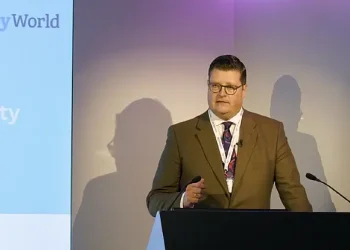The UK’s 2024 university admissions process has seen an impressive 76% of English 18-year-olds accepted into their first-choice universities, marking a significant achievement for students and educators alike.
Despite this success, regional disparities in acceptance rates have widened, highlighting ongoing challenges that the government aims to address through targeted initiatives.
Celebrating Student Success
Thousands of young people across England are celebrating today, with 76% of 18-year-old applicants securing their first-choice university placement. This figure is an increase from previous years, reflecting the hard work of both students and teachers.
The Education Secretary, Bridget Phillipson, praised the achievements, noting the resilience and dedication displayed during challenging times.
“Students should be incredibly proud of their hard work over the last two years and their achievements today,”
Phillipson said, acknowledging the efforts made by students despite various obstacles.
Regional Disparities: A Growing Concern
While the overall success rate is commendable, there are stark differences across regions. For instance, 25.3% of 18-year-olds from the North East secured a university place on results day compared to 42.5% from London.
The gap between these regions has widened to 17.2 percentage points, up from 15.3 in 2023 and 10.5 in 2019, raising concerns about educational equality across the country.
Addressing Inequalities
In response to these disparities, the government has announced several initiatives aimed at leveling the playing field. One key measure is the recruitment of 6,500 new teachers, with a focus on areas facing the largest recruitment challenges.
Additionally, a review of the curriculum and assessment methods has been launched to raise standards and eliminate barriers, particularly for students from disadvantaged backgrounds or those with special educational needs and disabilities (SEND).
A-Level and T-Level Achievements
This year’s results also highlight significant achievements in A-Level and T-Level qualifications.
- 27.8% of UK entries for A-Levels achieved a grade A or above, higher than in 2023.
- 76.4% of entries earned a grade C or above, also an improvement from the previous year.
- For T-Levels, 7,380 students received their results, with 88.7% passing or achieving higher—a testament to the success of these new technical qualifications.
Qualification |
Percentage of Students Achieving Top Grades |
Percentage of Students Passing |
|---|---|---|
| A-Levels | 27.8% achieving grade A or above | 76.4% achieving grade C or above |
| T-Levels | 88.7% passing or achieving higher | N/A |
The Path Ahead: Opportunities Beyond University
For students who didn’t secure their desired grades or have yet to decide their next steps, UCAS reports that nearly 30,000 courses are available through clearing, including many at top-tier universities.
Additionally, alternative pathways such as degree apprenticeships and higher technical qualifications offer students the chance to gain practical skills while building successful careers.
The Education Secretary emphasized the importance of exploring all available options, stating, “This government is committed to breaking down barriers to ensure that all young people, wherever they are from, have the knowledge and skills to seize opportunities.”
To Summarize
As the 2024 university admissions season draws to a close, it’s clear that while many students have achieved their academic goals, the challenge of addressing regional disparities remains.
The government’s efforts to recruit more teachers and review educational standards are steps in the right direction, but ongoing attention and action will be necessary to ensure that every young person in the UK has an equal opportunity to succeed.
Sources: THX News, Department for Education & The Rt Hon Bridget Phillipson MP.









